© 2025 MJH Life Sciences™ , Patient Care Online – Primary Care News and Clinical Resources. All rights reserved.
Update: AGA Clinical Guidelines on Management of Mild-Moderate Ulcerative Colitis
Most patients with UC have mild-moderate disease; updated recommendations reflect the AGA’s effort to promote standardized care for this group.
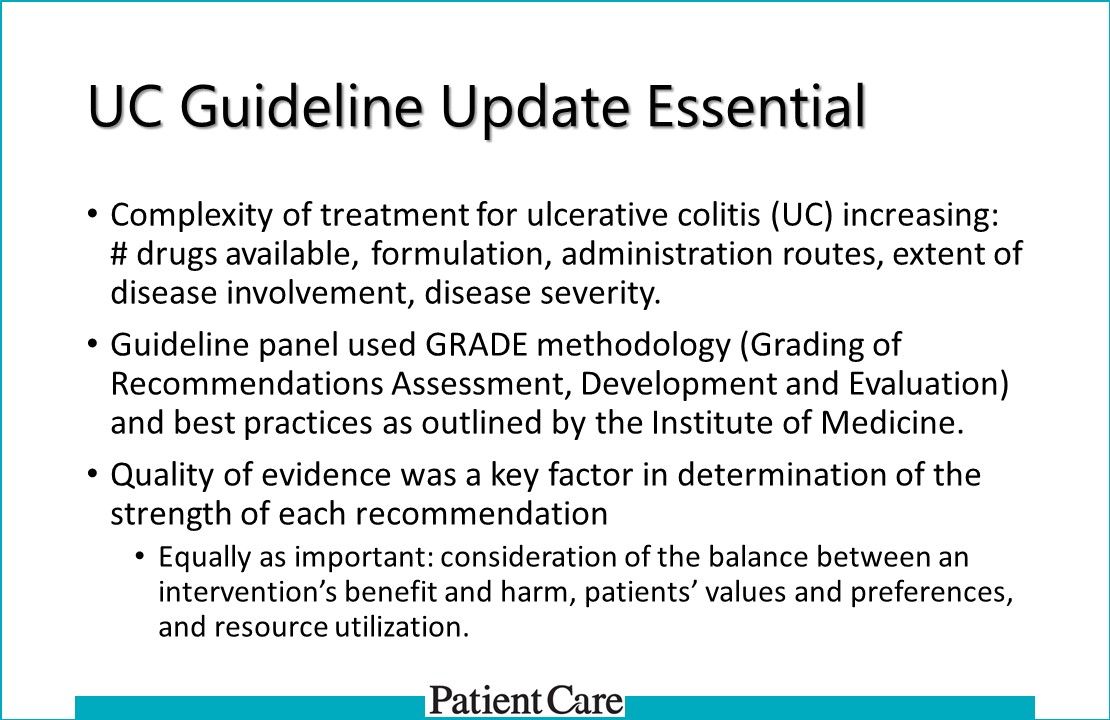
UC Guideline Update Essential. The complexity of treatment for UC is increasing due to the number of drugs available, formulation, administration routes, extent of disease involvement, and disease severity. The guideline panel used GRADE methodology and the best practices outlined by the Institute of Medicine to develop the updated guidelines. Quality of evidence was a key factor in determining the strength of each recommendation; the consideration of the balance between an intervention's benefit and harm, patient's values and preferences, and resource utilization was equally as important.
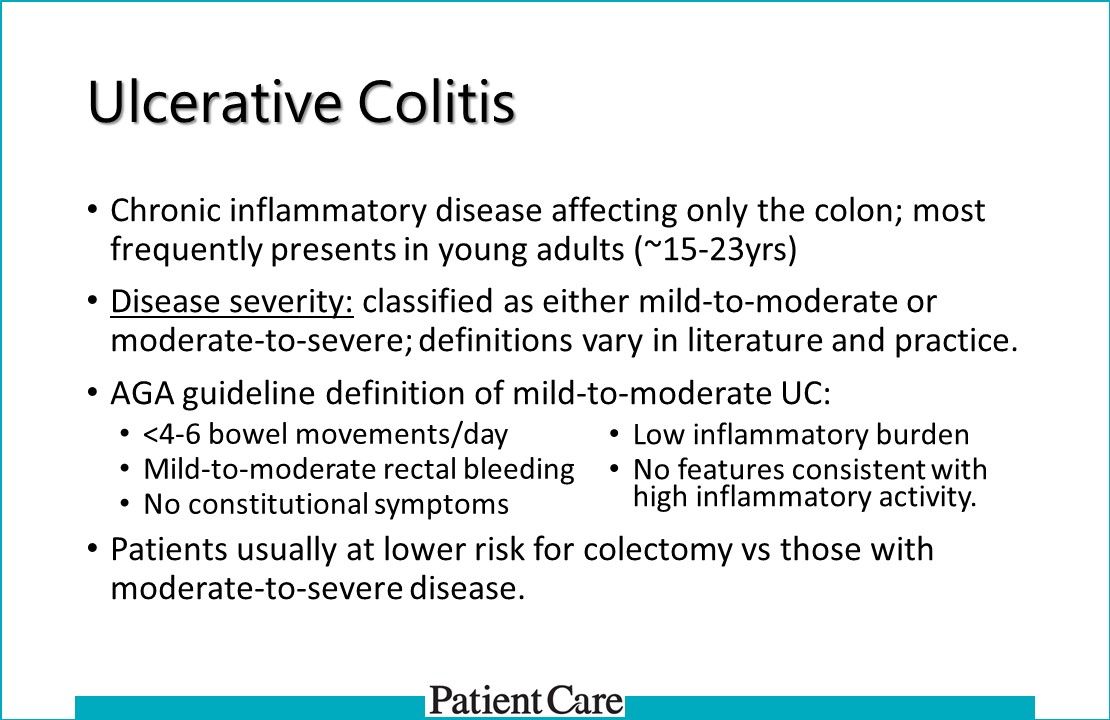
Ulcerative Colitis. UC is a chronic inflammatory disease affecting only the colon and most frequently presents in young adults aged around 15 to 23 years. Disease severity is classified as either mild-to-moderate or moderate-to-severe, however, definitions vary in literature and practice. For this guideline, mild-to-moderate UC was defined as having <4-6 bowel movements per day; mild-to-moderate rectal bleeding; no constitutional symptoms; low inflammatory burden; and no features consistent with high inflammatory activity. Patients are usually at lower risk for colectomy vs those with moderate-to-severe disease.
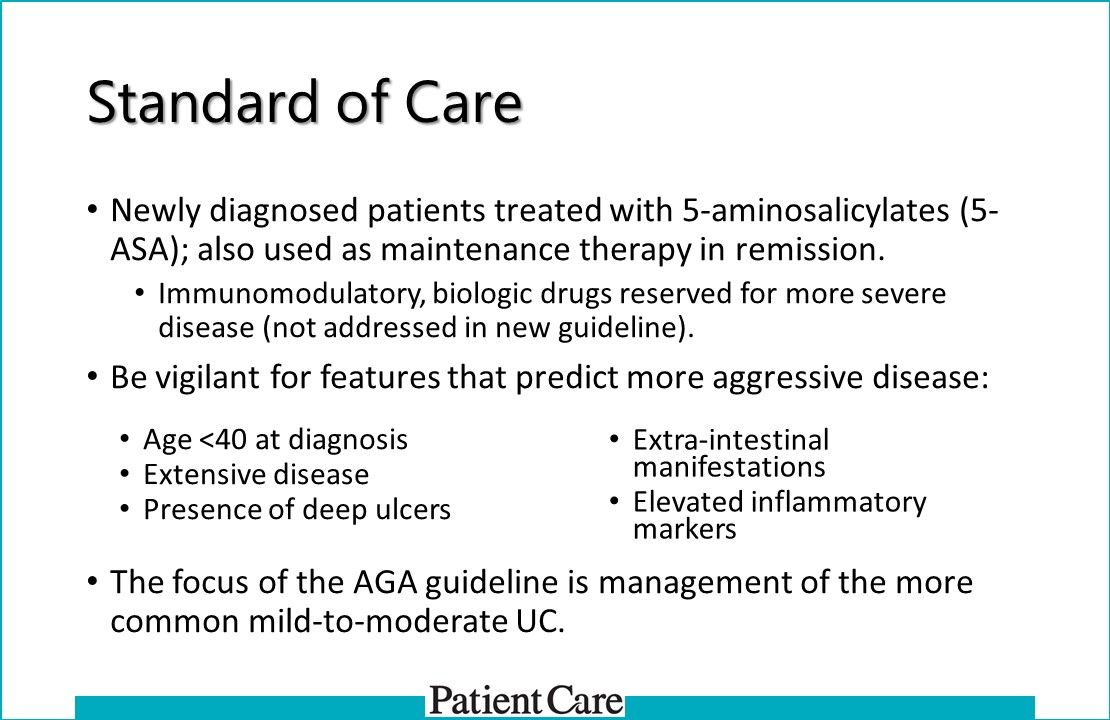
Standard of Care. Over 90% of newly diagnosed patients are treated with 5-ASA, which is also used as maintenance therapy in remission. Physicians should be vigilant for features that predict more aggressive disease. These features are aged <40 years at diagnosis, extensive disease, presence of sleep ulcers, extra-intestinal manifestations, and elevated inflammatory markers. The focus of this AGA guideline is the management of the more common mild-to-moderate UC.
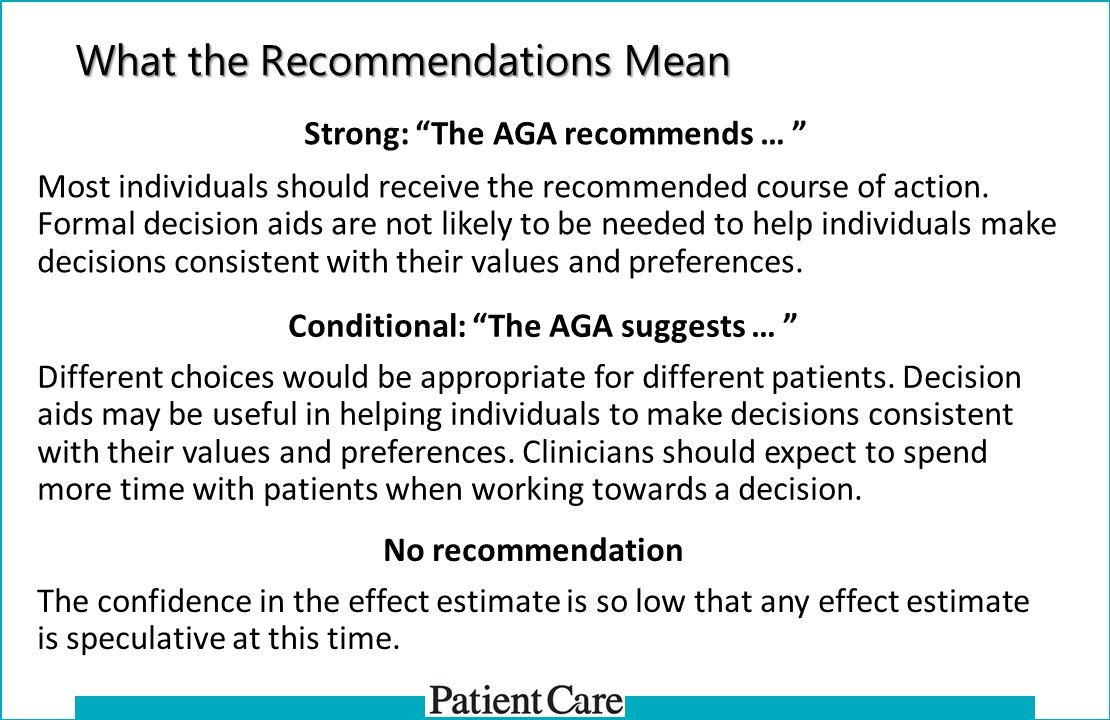
What the Recommendations Mean:
- Strong ("The AGA recommends..."): Most patients should receive recommended course of action; formal decision aids not likely to be needed to help patients make decisions consistent with their values and preferences.
- Conditional ("The AGA suggests..."): Different choices would be appropriate for different patients; decision aids may be useful in helping patients to make decisions consistent with their values and preferences; expect to spend more time with patients when working towards decision.
- No recommendation: Confidence in the effect estimate is so low that any effect estimate is speculative at this time.
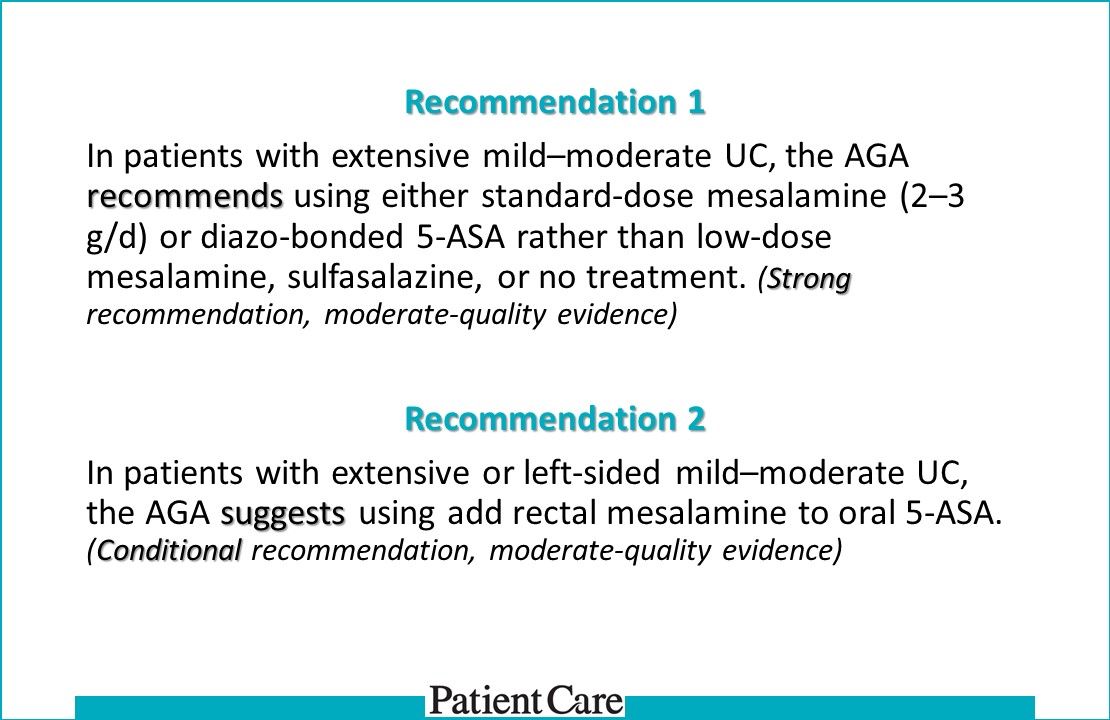
Recommendation 1: AGA recommends standard-dose mesalamine (2–3 g/d) or diazo-bonded 5-ASA vs low-dose mesalamine, sulfasalazine, or no treatment in patients with extensive mild-moderate UC. Recommendation 2: AGA suggests, in patients with left-sided mild/moderate UC, add rectal mesalamine to oral 5-ASA.
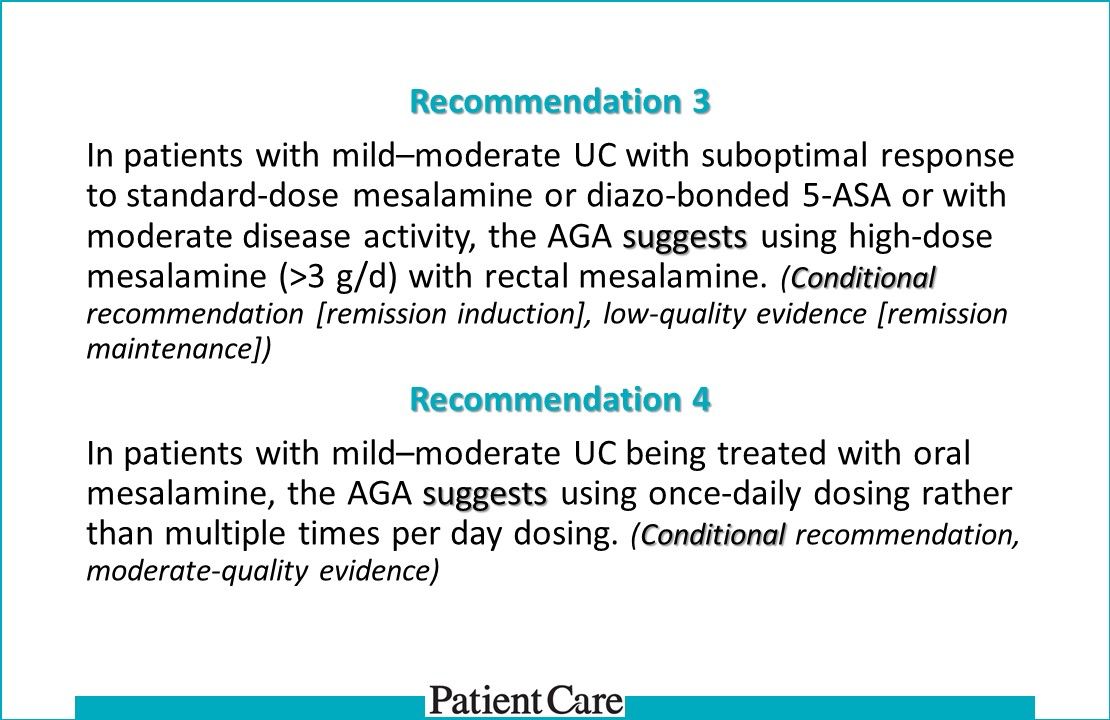
Recommendation 3: AGA suggests using high-dose mesalamine (>3 g/d) with rectal mesalamine in patients with mild-moderate UC with suboptimal response to standard-dose mesalamine or diazo-bonded 5-ASA or with moderate disease activity. Recommendation 4: AGA suggests using once-daily dosing vs multiple times per day dosing in patients with mild-moderate UC being treated with oral mesalamine.
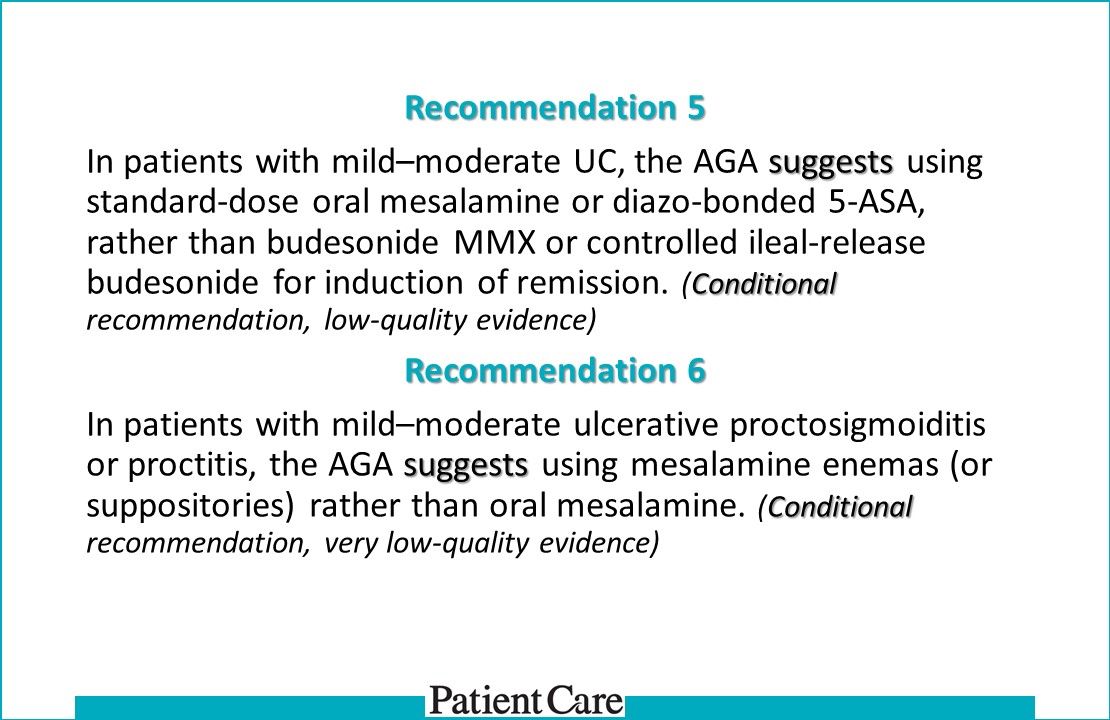
Recommendation 5: AGA suggests using standard-dose oral mesalamine or diazo-bonded 5-ASA vs budesonide MMX or controlled ileal-release budesonide for induction of remission in patients with mild-moderate UC. Recommendation 6: AGA suggests, in patients with mild-moderate ulcerative proctosigmoiditis or proctitis, using mesalamine enemas (or suppositories) vs oral mesalamine.
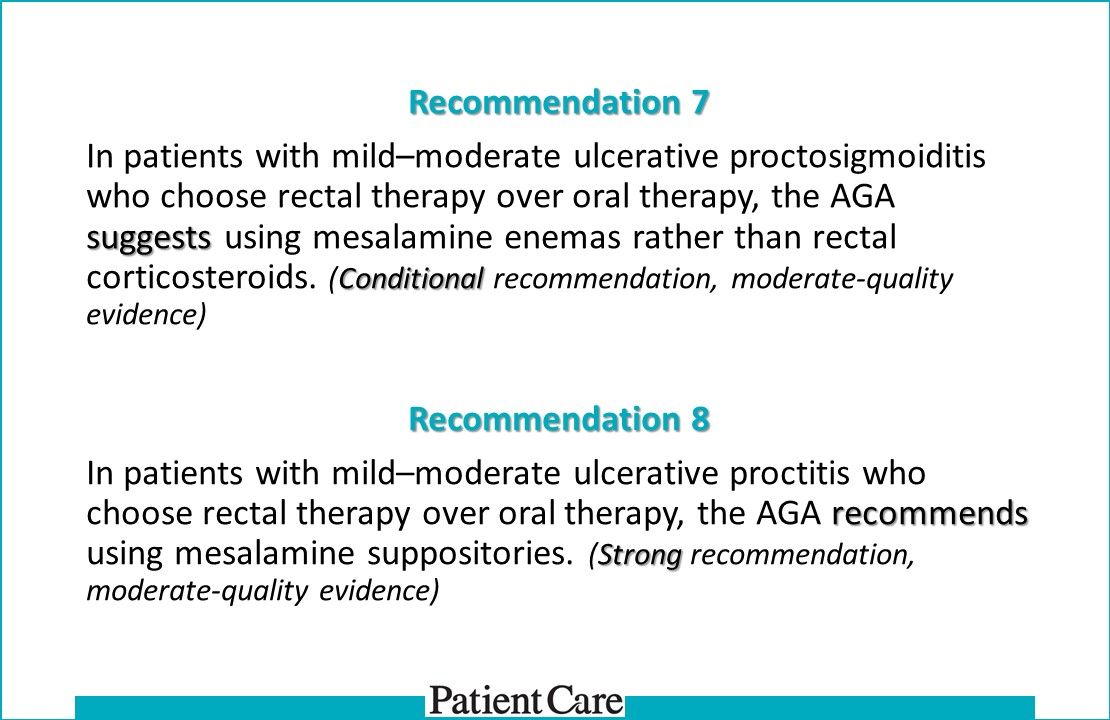
Recommendation 7: AGA suggests using mesalamine enemas vs rectal corticosteroids in patients with mild-moderate ulcerative proctosigmoiditis who choose rectal therapy over oral therapy. Recommendation 8: AGA recommends using mesalamine suppositories in patients with mild–moderate ulcerative proctitis who choose rectal therapy over oral therapy.
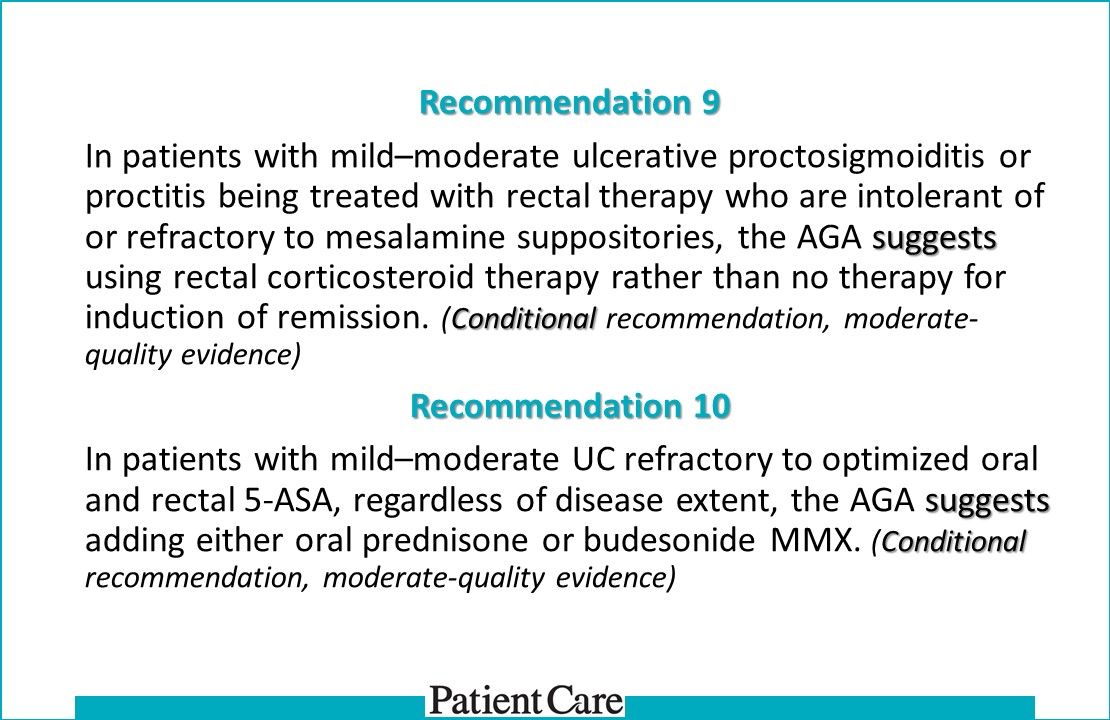
Recommendation 9: AGA suggests using rectal corticosteroid therapy vs no therapy for induction of remission in patients with mild–moderate ulcerative proctosigmoiditis or proctitis being treated with rectal therapy who are intolerant of or refractory to mesalamine suppositories. Recommendation 10: AGA suggests adding either oral prednisone or budesonide MMX in patients with mild–moderate UC refractory to optimized oral and rectal 5-ASA, regardless of disease extent.
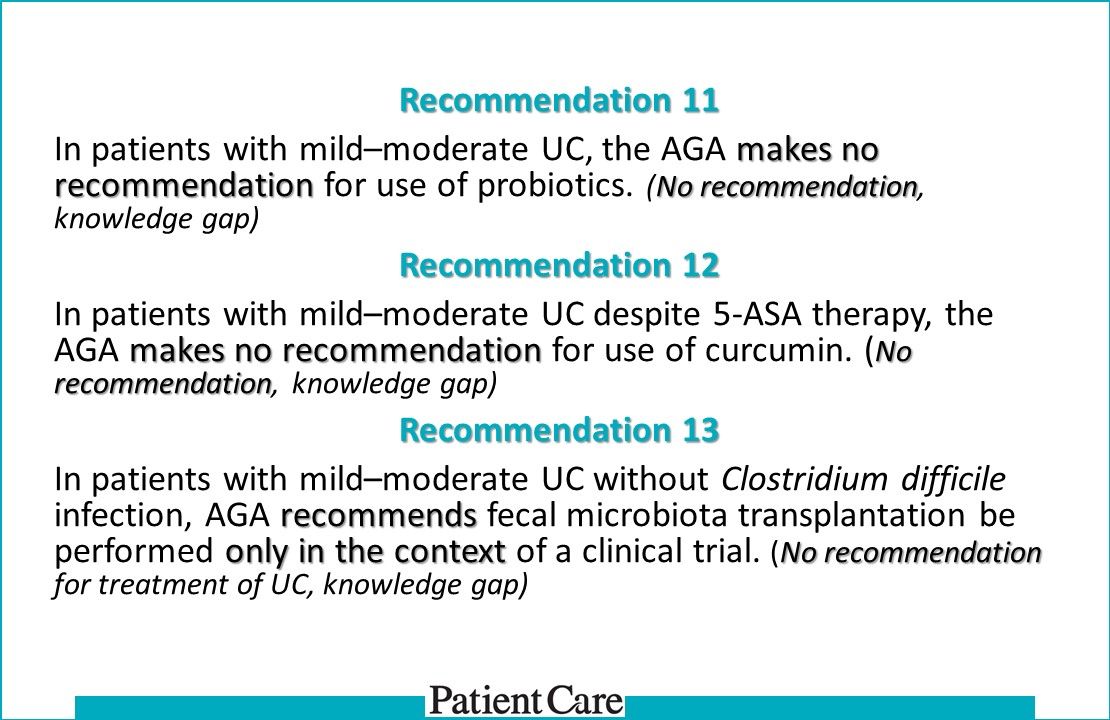
Recommendation 11: AGA makes no recommendation for the use of probiotics in patients with mild-moderate UC. Recommendation 12: AGA makes no recommendation for the use of curcumin in patients with mild-moderate UC despite 5-ASA therapy. Recommendation 13: AGA recommends fecal microbiota transplantation be performed onlyin the context of a clinical trial in patients with mild-moderate UC without Clostridium difficile infection.
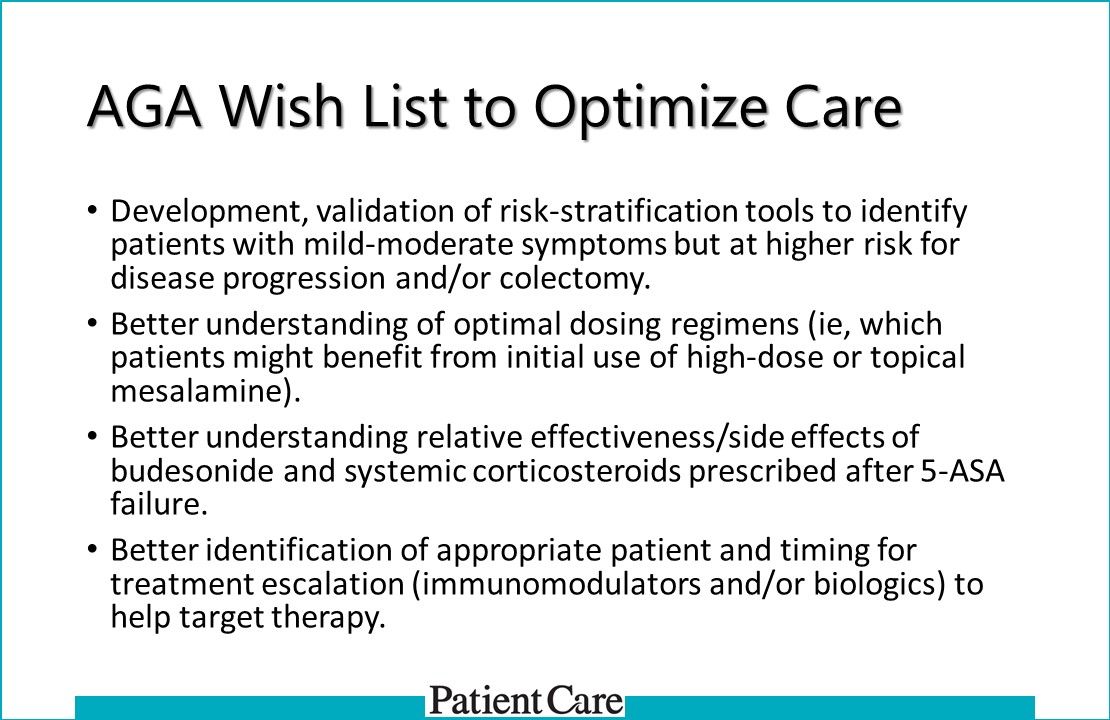
AGA Wish List to Optimize Care:
- Development, validation of risk-stratification tools to identify patients with mild-moderate symptoms but at higher risk for disease progression and/or colectomy.
- Better understanding of optimal dosing regimens (ie, which patients might benefit from initial use of high-dose or topical mesalamine).
- Better understanding relative effectiveness/side effects of budesonide and systemic corticosteroids prescribed after 5-ASA failure.
- Better identification of appropriate patient and timing for treatment escalation (immunomodulators and/or biologics) to help target therapy.
Reference: American Gastroenterological Association Institute Clinical Guidelines Committee, Ko CW, Singh S, et al. AGA clinical practice guidelines on the management of mild-to-moderate ulcerative colitis. Gastroenterology. 2019;156:748-764.
The American Gastroenterological Association (AGA) recently released the updated recommendations on the management of mild to moderate ulcerative colitis (UC). Click through the slideshow below to get the highlights and 13 key recommendations for physicians.Â
Related Content:




